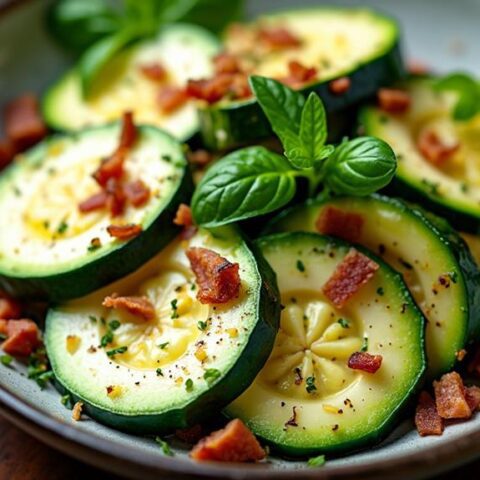
Tracking carbs in Prosecco is vital for maintaining a low-carb diet while enjoying this sparkling wine. Understanding that a 5-ounce serving generally contains 2-3 grams of carbohydrates is a good starting point. Choosing Brut or Extra Brut varieties is essential as they are lower in carbs, often containing 1-2 grams per serving. Brands like Mr SYLTBAR offer options as low as 0.3 grams of carbs. Checking labels for detailed carb content and pouring standard 5-ounce servings helps manage intake. Explore further to find more insights on low-carb Prosecco options and mindful consumption strategies.
Key Takeaways
- Check labels for carb content, especially in flavored or sweetened Prosecco varieties.
- Select Brut or Extra Brut Prosecco for lower carb content, around 1-2 grams per serving.
- Opt for brands like Mr SYLTBAR with minimal carbs, at 0.3 grams per serving.
- Measure pours to a standard 5-ounce serving to accurately track carb intake.
- Limit consumption to special occasions to maintain a low-carb diet.
Understanding Prosecco's Carb Content
When it comes to understanding Prosecco's carbohydrate content, knowledge of its composition is key for those mindful of their carbohydrate intake. Prosecco typically contains about 2-3 grams of carbohydrates per 5-ounce serving, making it a relatively low-carb option among sparkling wines.
This carb content, however, can vary considerably depending on the sweetness level, which is determined by the amount of sugar added during production. Brut nature Proseccos, for instance, have minimal residual sugar and consequently, the lowest carbohydrate levels.
For those adhering to a low-carb diet, such as keto, selecting these options can help manage daily carbohydrate intake effectively. It's important to remember that individual responses to carbohydrates, much like cholesterol dynamics on the keto diet, can vary considerably, necessitating a personalized approach.
In contrast, sweeter varieties like demi-sec contain higher amounts of residual sugar, leading to increased carbs per serving. For consumers seeking even lower-carb options, brands like La Marca and Mr SYLTBAR offer Prosecco with only 1 gram and 0.3 grams of carbohydrates per serving, respectively.
Understanding these variations in carb content allows consumers to make informed choices and align their beverage selections with their dietary goals. By focusing on the serving size and specific type of Prosecco, individuals can enjoy this sparkling wine without compromising their low-carb lifestyle.
Comparing Prosecco With Other Sparkling Wines
Having explored Prosecco's carbohydrate content, it is instructive to compare it with other sparkling wines to better inform dietary choices. Prosecco sparkling wine typically contains about 2-3 grams of carbs per 5 oz glass, which is slightly higher than some of its sparkling counterparts. For those adhering to a low-carb lifestyle, understanding these differences is vital.
| Sparkling Wine | Carb Content (g) | Notes |
|---|---|---|
| Prosecco | 2-3 | More affordable, slightly higher carbs |
| Champagne | 1-2 | Lower carb content, often pricier |
| Cava | 1-2 | Similar to Champagne in carb content |
Champagne, for instance, generally has around 1-2 grams of carbs per serving, making it a lower-carb alternative to Prosecco. Similarly, Cava, another popular sparkling wine, mirrors Champagne's carb content, averaging about 1-2 grams per glass. While Prosecco may offer a more budget-friendly option, its slightly higher carb content is a factor for those on a low-carb diet.
When selecting Prosecco or any sparkling wine, it is essential to examine the sugar content in sweetened or flavored varieties, as these may greatly increase the carb count compared to their brut counterparts. This awareness supports informed choices for maintaining a low-carb lifestyle.
Choosing Low-Carb Prosecco Options
Opting for low-carb Prosecco requires an understanding of its various types and their sugar content. When choosing Prosecco for a low-carb diet, focusing on options labeled as Brut or Extra Brut is vital. These varieties are known for their dryness, which translates to lower carb content, typically averaging around 1-2 grams per 5-ounce serving.
They not only help in maintaining a low-carb intake but are also relatively low in calories, making them a preferred choice for health-conscious individuals. Drinking low-carb Prosecco aligns well with a ketogenic diet's principles, as it helps keep carbohydrate consumption minimal, aiding in maintaining ketosis and promoting fat burning.
Among the options available, Mr SYLTBAR Premium Prosecco is particularly remarkable, with a remarkably low carbohydrate content of just 0.3 grams per 6-ounce serving. This makes it an excellent choice for those strictly monitoring their carb intake. Other brands like La Marca, Zonin, and Ruffino offer Prosecco with carb contents ranging from 3 to 3.5 grams, suitable for occasional indulgence while still aligning with a low-carb lifestyle.
When selecting Prosecco, it is important to check the label for specific carb content, as flavored or sweetened varieties can considerably increase carbohydrate levels. Pairing your Prosecco with low-carb foods can further enhance your dietary experience.
Incorporating Prosecco Into Your Diet
Selecting the right Prosecco is an initial step toward aligning your beverage choices with a low-carb lifestyle. With Prosecco typically containing 2-3 grams of carbohydrates per 5-ounce serving, it stands as a relatively low-carb option among wines.
For those committed to a low-carb diet, opting for brut or extra brut varieties is advisable due to their reduced sugar and carb content. When selecting Prosecco, it's important to take into account low-carb options in other drink categories, such as spirits or certain beers, to maintain a consistent low-carb intake. This choice guarantees that Prosecco can be enjoyed without derailing your dietary goals.
Incorporating Prosecco into your diet can be seamlessly achieved by pairing it with low-carb foods such as fresh vegetables, cheese, or seafood. These food choices help maintain a balanced intake, complementing the crisp, light profile of Prosecco without introducing excessive carbs.
Moderation remains vital; limiting Prosecco consumption to special occasions or adhering to one serving per day for women and two for men helps manage overall carb intake effectively.
Tracking carb intake while enjoying Prosecco can be simplified by measuring servings. Aim for a standard pour of about 5 ounces to avoid overindulgence, guaranteeing that your enjoyment of Prosecco remains aligned with your low-carb lifestyle objectives.
Alternatives and Mindful Consumption
When exploring alternatives to Prosecco, it's important to contemplate options that align with a low-carb lifestyle without compromising enjoyment. Opt for dry varieties such as brut or extra brut, which typically contain fewer carbs, averaging around 1-2 grams per 5-ounce serving.
Additionally, consider low-carb food pairings that complement Prosecco, enhancing both taste and dietary goals. Steer clear of high-carb condiments, which can inadvertently increase your carbohydrate intake.
Consider the following:
- Cheese Pairing: Cheese, particularly hard cheeses like Parmesan or aged cheddar, can enhance the Prosecco experience while maintaining a low-carb profile.
- Mr SYLTBAR: This brand offers an exceptional low-carb option, containing only 0.3 grams of carbs per serving, making it ideal for mindful consumption.
- Mindful Mixing: Be cautious with Prosecco-based cocktails, as mixers often contain added sugars, greatly increasing carb counts.
To guarantee mindful consumption, it's vital to measure your pours to stick to the standard serving size of about 5 ounces, avoiding excessive intake.
Regularly check nutritional labels as carb content can vary among Prosecco brands. This allows for informed choices, keeping carbs per serving in check.
Frequently Asked Questions
Can I Drink Prosecco on a Low-Carb Diet?
Prosecco, particularly brands offering low carb options, is suitable for low-carb diets. Favor diet-friendly drinks like brut nature styles. For social occasions, consider sparkling wines' flavor profiles and nutritional benefits, while carb counting and exploring wine pairings or alcohol alternatives.
How Many Carbs Are in One Glass of Prosecco?
A standard 5-ounce glass of Prosecco contains approximately 2-3 grams of carbohydrates, positioning it among low carb alcohol choices. For those adhering to dietary restrictions, brut nature varieties offer lower carb content, enhancing its keto friendly appeal.
How Do You Count Carbs on a Keto Label?
When following a keto diet, examine nutritional labels for total carbohydrates, noting serving sizes. Subtract fiber and sugar alcohols to determine net carbs. Consider low carb beverages like wine alternatives, ensuring mindful drinking aligns with dietary restrictions and macro tracking.
How Many Net Carbs in a Bottle of Prosecco?
A standard bottle of Prosecco contains approximately 15-20 grams of net carbs. For keto-friendly drinks, consider lower-carb sparkling wine options like Mr SYLTBAR or sugar-free Prosecco, offering fewer net carbs and suitable for dietary restrictions.
Conclusion
In summary, understanding the carbohydrate content of Prosecco is essential for those adhering to a low-carb diet. A comparative analysis with other sparkling wines reveals that Prosecco generally offers a lower carb option. Selecting varieties labeled as "brut" or "extra brut" can further reduce carb intake. Integrating Prosecco into a diet requires mindful consumption, balancing indulgence with dietary goals. For those seeking alternatives, exploring other low-carb beverages can provide additional options while maintaining dietary compliance.










No Comments